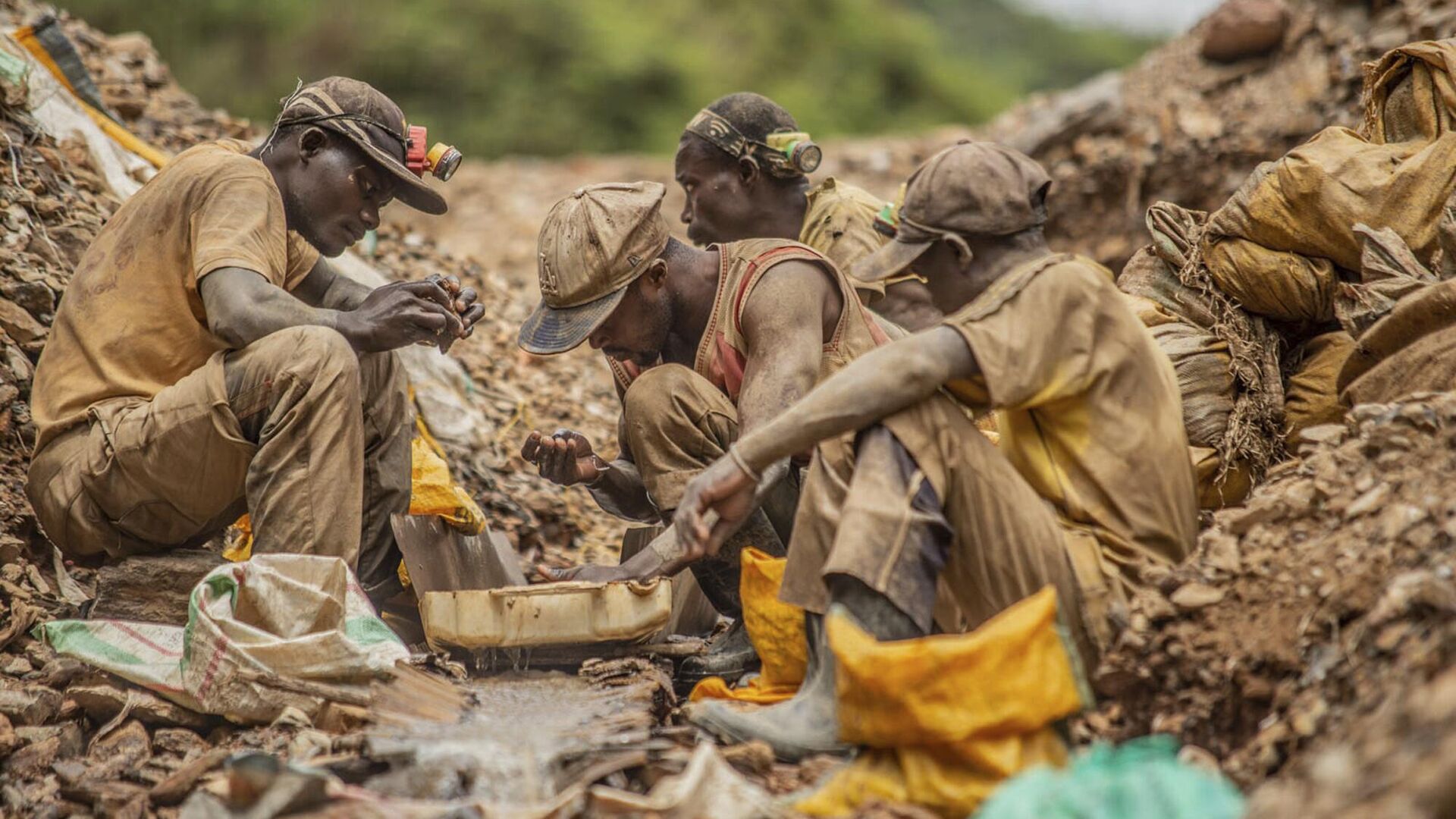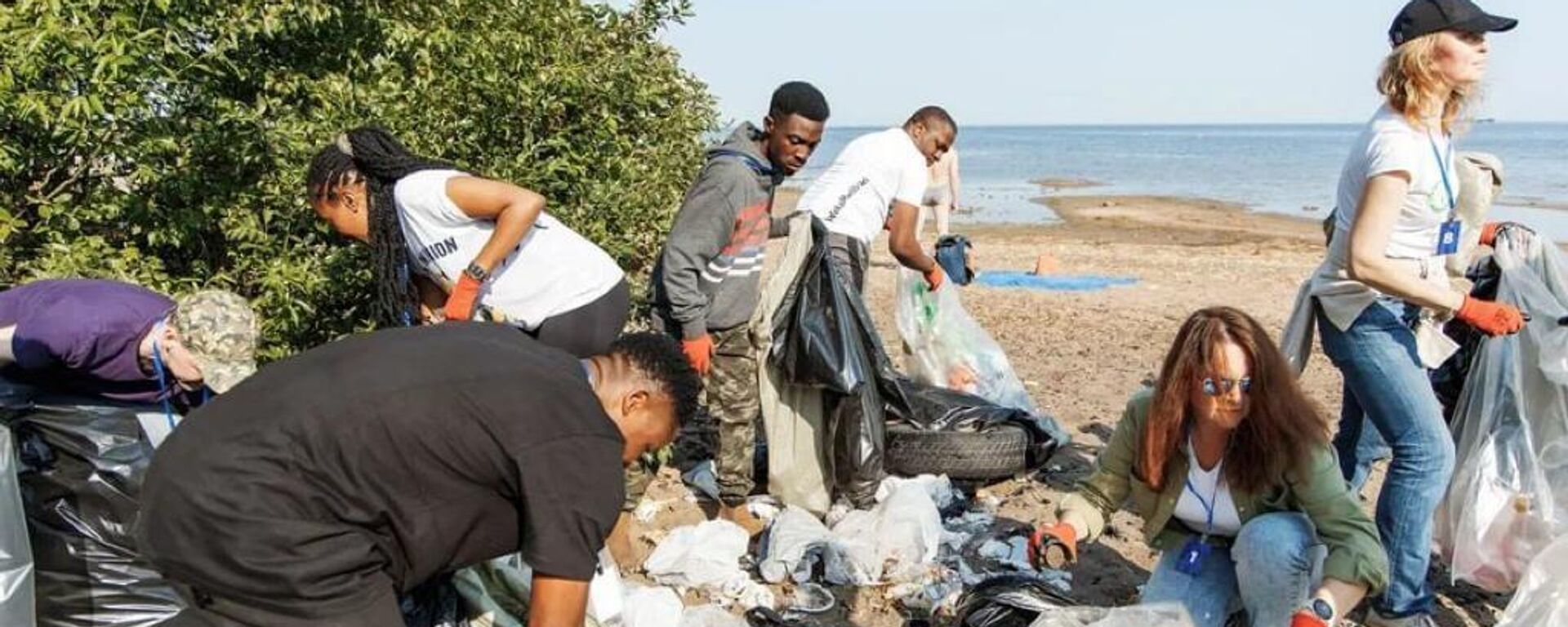https://en.sputniknews.africa/20240229/injustices-and-extractivism-africa-advocates-for-fair-extraction-of-minerals-used-in-clean-energy-1065315768.html
'Injustices and Extractivism': Africa Advocates for Fair Extraction of Minerals Used in Clean Energy
'Injustices and Extractivism': Africa Advocates for Fair Extraction of Minerals Used in Clean Energy
Sputnik Africa
The sixth session of the United Nations Environment Assembly is taking place from February 26 to March 1 in Nairobi, Kenya. The conference "sets the global... 29.02.2024, Sputnik Africa
2024-02-29T12:33+0100
2024-02-29T12:33+0100
2024-02-29T13:33+0100
sub-saharan africa
energy
renewable energy
nairobi
kenya
united nations (un)
east africa
environment
mining
minerals
https://cdn1.img.sputniknews.africa/img/07e8/02/1d/1065317946_0:105:2000:1230_1920x0_80_0_0_2b9f4d0cca1dabeba06d78f45ae56690.jpg
African officials are advocating for tighter regulations on the extraction of minerals and metals required for the shift to clean energy, citing concerns about the "injustices and extractivism" of fossil fuel operations.A resolution for structural reforms to enhance the fair distribution of benefits from extraction, supported by a group primarily composed of African nations such as Senegal, Burkina Faso, Cameroon, and Chad, was introduced at the UN environmental assembly in Nairobi on Wednesday. The proposal emphasized the need for sustainable use of transitional minerals.As the world moves away from fossil fuels, the demand for transitional minerals and metals needed to build solar power plants, wind farms, and electric vehicles, has been increasing. The UN Environment Programme estimates that billions of tonnes of transitional minerals would be needed in the next 30 years to meet climate targets. And Africa has significant deposits of these key minerals.African leaders continued by saying that the demand creates an opportunity for mineral-rich African countries that has been so far untapped. The vital transitional minerals are difficult to process in many of the continent's nations, so the raw materials are often shipped and processed elsewhere.Some mineral-producing African countries have restricted exports of raw minerals to boost domestic processing, as they seek to capitalize on the economic growth and employment creation of the green minerals race. So, the leaders emphasized the importance of agreements that facilitate technological transfer, enhance local processing capacity, and improve labor skills for a fair transition.Furthermore, the environmentalists backed the calls for benefit sharing. They supported the global shift to low-carbon technologies, but warned that the clean energy transition could exacerbate inequality in Africa's fossil fuel industry.UNEP executive director Inger Andersen also urged governments and industry to employ sustainably sourced minerals in their clean energy transitions, and called on mineral-rich countries to enter into contractual arrangements that would safeguard them from “colonial models” of resource and labor abuse.Lastly, the states supporting the resolution urged the UN to enhance scientific understanding of new practices like deep sea mining — the process of extracting essential minerals from the ocean floor — which environmentalists believe could pose a threat to marine ecosystems.It is worth noting that, according to the UN data*, the continent has the world's largest natural reserves of uranium, platinum, diamonds, and cobalt, among many others:These minerals are necessary to shift to clean energy systems. However, the "increased demand presents environmental, economic, geopolitical, and trade consequences for Africa," according to the UN report.
https://en.sputniknews.africa/20240213/most-of-global-norths-waste-goes-to-africa-says-pollution-eradication-startup-ceo-1065062758.html
nairobi
kenya
east africa
Sputnik Africa
feedback@sputniknews.com
+74956456601
MIA „Rossiya Segodnya“
2024
Christina Glazkova
https://cdn1.img.sputniknews.africa/img/07e7/0b/07/1063380906_0:0:673:674_100x100_80_0_0_79628b4d0cd9f29291a57aa13bbf9e7a.jpg
Christina Glazkova
https://cdn1.img.sputniknews.africa/img/07e7/0b/07/1063380906_0:0:673:674_100x100_80_0_0_79628b4d0cd9f29291a57aa13bbf9e7a.jpg
News
en_EN
Sputnik Africa
feedback@sputniknews.com
+74956456601
MIA „Rossiya Segodnya“
Sputnik Africa
feedback@sputniknews.com
+74956456601
MIA „Rossiya Segodnya“
Christina Glazkova
https://cdn1.img.sputniknews.africa/img/07e7/0b/07/1063380906_0:0:673:674_100x100_80_0_0_79628b4d0cd9f29291a57aa13bbf9e7a.jpg
energy, renewable energy , nairobi, kenya, united nations (un), east africa, environment, mining, minerals
energy, renewable energy , nairobi, kenya, united nations (un), east africa, environment, mining, minerals
'Injustices and Extractivism': Africa Advocates for Fair Extraction of Minerals Used in Clean Energy
12:33 29.02.2024 (Updated: 13:33 29.02.2024) Christina Glazkova
Writer / Editor
The sixth session of the United Nations Environment Assembly is taking place from February 26 to March 1 in Nairobi, Kenya. The conference "sets the global environmental agenda, provides overarching policy guidance, and defines policy responses to address emerging environmental challenges," according to the UN.
African officials are advocating for tighter regulations on the extraction of minerals and metals required for the shift to clean energy, citing concerns about the "
injustices and extractivism" of fossil fuel operations.
A resolution for structural reforms to enhance the fair distribution of benefits from extraction, supported by a group primarily composed of African nations such as
Senegal, Burkina Faso, Cameroon, and Chad, was introduced at the UN environmental assembly in Nairobi on Wednesday. The proposal emphasized the need for sustainable use of transitional minerals.
“This resolution is crucial for African countries, the environment and the future of our population,” Jean Marie Bope, a delegate from the Democratic Republic of Congo, which supported the resolution, was quoted as saying by the media.
As the world moves away from fossil fuels, the demand for transitional minerals and metals needed to build
solar power plants, wind farms, and electric vehicles, has been increasing. The UN Environment Programme estimates that billions of tonnes of transitional minerals would be needed in the next 30 years to meet climate targets. And Africa has significant deposits of these key minerals.
African leaders continued by saying that the demand creates an opportunity for mineral-rich African countries that has been so far untapped. The vital transitional
minerals are difficult to process in many of the continent's nations, so the raw materials are often shipped and processed elsewhere.
“Our experience of exporting them raw has shown us that there is no benefit for the continent in that,” said Bope, as cited by the reports. “Africa’s minerals are enough to power the clean energy transition, but we don’t want to do things how we have done them in the past.”
Some mineral-producing African countries have restricted exports of raw minerals to boost domestic processing, as they seek to capitalize on the economic growth and
employment creation of the green minerals race. So, the leaders emphasized the importance of agreements that facilitate technological transfer, enhance local processing capacity, and improve labor skills for a fair transition.
Furthermore, the environmentalists backed the calls for benefit sharing. They supported the global shift to low-carbon technologies, but warned that the clean energy transition could exacerbate inequality in Africa's fossil fuel industry.
“We need to make sure that industrialization happens here and that we’re not just serving another continent’s industrialization plan,” reportedly said Seble Samuel, head of Africa campaigns and advocacy at the fossil fuel non-proliferation treaty initiative. “We cannot afford to replicate the same injustices and extractivism that’s happened with the fossil fuel economy.”
UNEP executive director Inger Andersen also urged governments and industry to employ sustainably sourced minerals in their clean energy transitions, and called on mineral-rich countries to enter into contractual arrangements that would safeguard them from “
colonial models” of resource and labor abuse.
Lastly, the states supporting the resolution urged the UN to enhance scientific understanding of new practices like deep sea mining — the process of extracting essential minerals from the ocean floor — which environmentalists believe could
pose a threat to marine ecosystems.
“The marine ecosystem is very sensitive, so it’s extremely important to scrutinize this while it’s still in the experimental phase, and understand its impacts,” Bope concluded.
It is worth noting that, according to the
UN data*, the continent has the world's largest natural reserves of uranium, platinum, diamonds, and cobalt, among many others:
World's Natural Reserves | % In Africa * |
Minerals | 30% |
Natural gas | 8% |
Oil | 12% |
Chromium and Platinum | 90% |
Gold | 40% |
These minerals are necessary to shift to clean energy systems. However, the "increased demand presents environmental, economic, geopolitical, and trade consequences for Africa," according to the
UN report.



